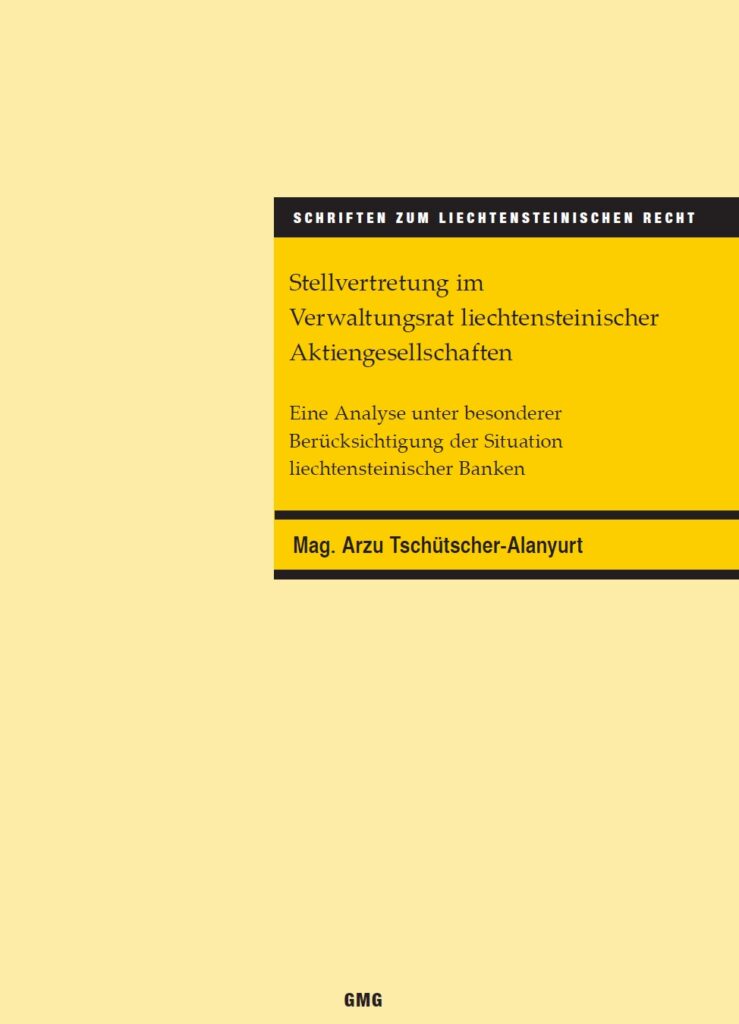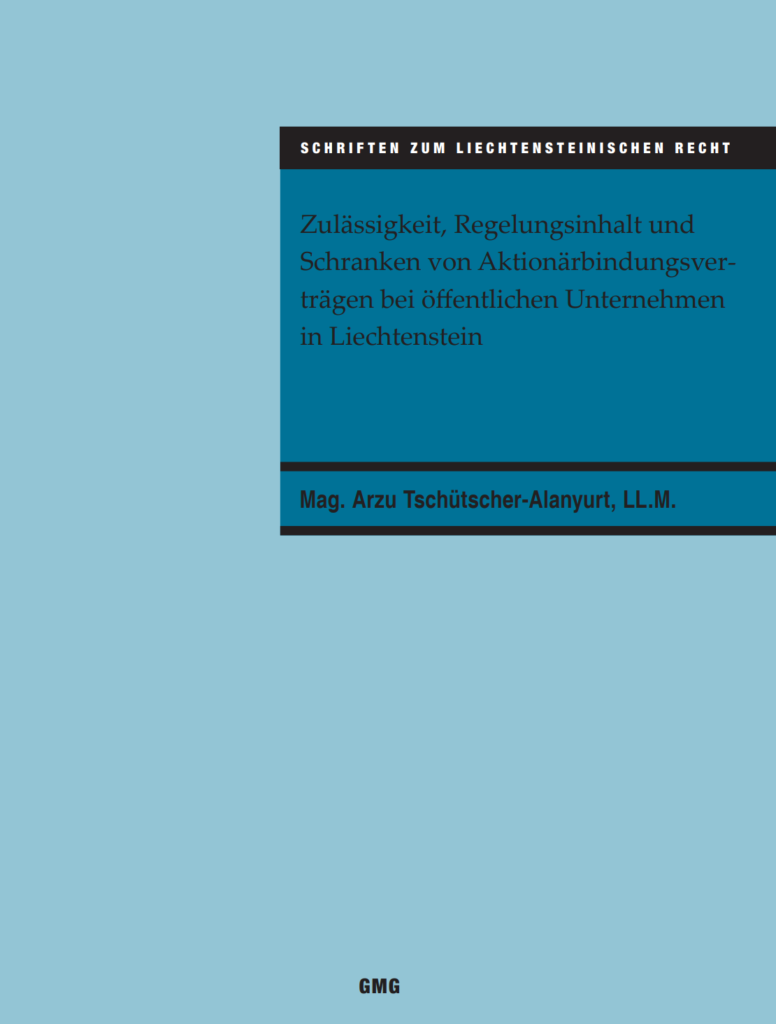
ISBN 978-3-907249-02-4
An international composition of boards of directors is no longer a rarity these days. Professional and experienced board members are in great demand. They often take on several mandates, provided they are compatible with each other, no maximum mandate limits are violated and, in principle, all duties can be fulfilled. However, there may be situations and cases of temporary absences and hindrances of individual members of the Board of Directors. Nevertheless, the Board of Directors as a whole should always remain capable of acting, the joint formation of corporate will should be ensured to the best possible extent, and the full range of knowledge and expertise within the Board should be able to be utilized at any time.
This paper deals with the permissibility and problems of internal substitutes of members of the board of directors in Liechtenstein public limited companies, with special regard to the situation of banks as regulated public limited companies. The paper examines which substitute options are permitted under company law as well as under banking supervision law (which is significantly influenced by European regulation) and which restrictions exist. Particular attention is paid to the provisions of the Liechtenstein Persons and Companies Act, the Banking Act and the Banking Ordinance as well as the relevant supervisory practice (guidelines and notices of the Liechtenstein Financial Market Authority, recommendations and guidelines of the European Banking Authority).
The paper shows that Liechtenstein law permits and enables a wide range of possibilities for internal substitutes on the boards of directors of regular public limited companies in general and of banking institutions in particular. For effective and practical solutions, it is crucial that the individual company carefully considers the concrete design of the substitute options and precisely implements them in the articles of incorporation and any further internal policies and regulations. Standard solutions are not recommended. The paper therefore presents concrete possibilities for the practical application of internal substitutes within a company’s governing bodies and points out corresponding formulation clauses as an aid to orientation.

Sustainability has long been more than a trend or a life-style phenomenon. Addressing the issue of sustainability has become unavoidable. In the context of sustainability, companies have to deal with legal requirements, but also with the expectations of customers, employees and society as a whole. They all challenge political decision-makers to create the right framework conditions.
The book clarifies the three dimensions of sustainability as well as the interdependencies and interactions between these dimensions. In doing so, social, ecological and economic sustainability are placed in an overall context instead of discussing them in isolation. This is done from the perspective of national economies, companies and citizens. It not only takes a look at history, but also discusses technologies of the future, such as artificial intelligence, in the context of sustainability. The crucial roles that law, morality and ethics play in the implementation of sustainability goals will be highlighted, as well as the implementation status of the United Nations Sustainable Development Goals (SDGs). Practical application and implementation approaches as well as concrete concepts offer assistance, especially for corporate sustainability management.

This study deals with the admissibility, possibilities and limitations of shareholders’ agreements in public companies in connection with stock corporations governed by special laws. In doing so, it examines which possibilities the Stock Corporation Act in conjunction with the General Civil Code (ABGB) opens up for the drafting of shareholders’ agreements and which restrictions arise from the regulatory framework applicable to public companies – taking into account the respective special laws, the ÖUSG, the owner or participation strategies as well as the Public Corporate Governance Code – and are noteworthy.
The result shows that Liechtenstein law does not explicitly mention the shareholders’ agreement, but its admissibility is undisputed in doctrine and jurisprudence. However, with regard to the possibilities of structuring the shareholders’ agreement, the private autonomy of the PGR and the contract law according to the ABGB is opposed by the detailed standardization of the control and management of public companies. For the legally valid structuring of shareholders’ agreements in connection with public companies, it is therefore crucial to correctly take into account the special legal norms, the order of competences of the state as well as the need for transparency of the general public, which clearly restricts the very far-reaching possibilities of structuring left to private autonomy and breaks the discretion.